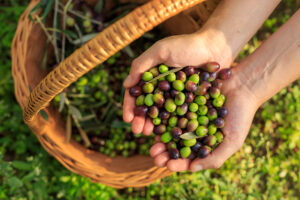Olive harvesting in the Tunisian Berber villages goes through a unique and fascinating process.
Do you want to take part in this activity with a Berber family? Tacapes Tours offers you an exceptional excursion between the vast olive fields to pick olives and taste pure oil.
1. What makes the olives of Tunisia special?

Being located in North Africa and surrounded by the Mediterranean, Tunisia is blessed for having a climate and lands that contribute to the growth of the greatest fruits and vegetables of all time.
The olive tree in Tunisia can date back to 2500 years. Moreover, the olive harvesting season is performed from November until February.
The most cultivated olive varieties in the south are the ‘’Chemlali’’. That’s why the quality of the Tunisian olive is special and it delivers an extra-fine and pungent taste.
Besides, the Tunisian olive oil was granted many international awards and proved itself in the market.
2. The olive harvesting… A season of festivities!
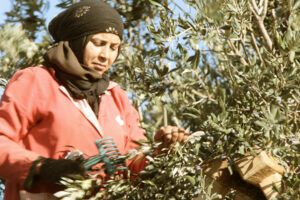
The inhabitants of the Berber villages perform unique rituals to welcome the olive harvesting season.
It is considered Tunisian folklore. Farmers are proud of the harvest and they celebrate it for days. Families and friends gather, sing, dance, and make special food for the occasion.
You will participate in the olive harvest with a Berber family, and share memorable stories with the locals.
Agricultors still collect the olives with their hands using gloves, ladders, and rakes/ goat horns to maintain their quality and preserve their natural properties.
After harvesting the olives, they clean them with water to get rid of the impurities such as leaves, dirt, stones, etc. to prevent the bitter taste of the oil.
3. The old tradition of extracting oil after olive harvesting
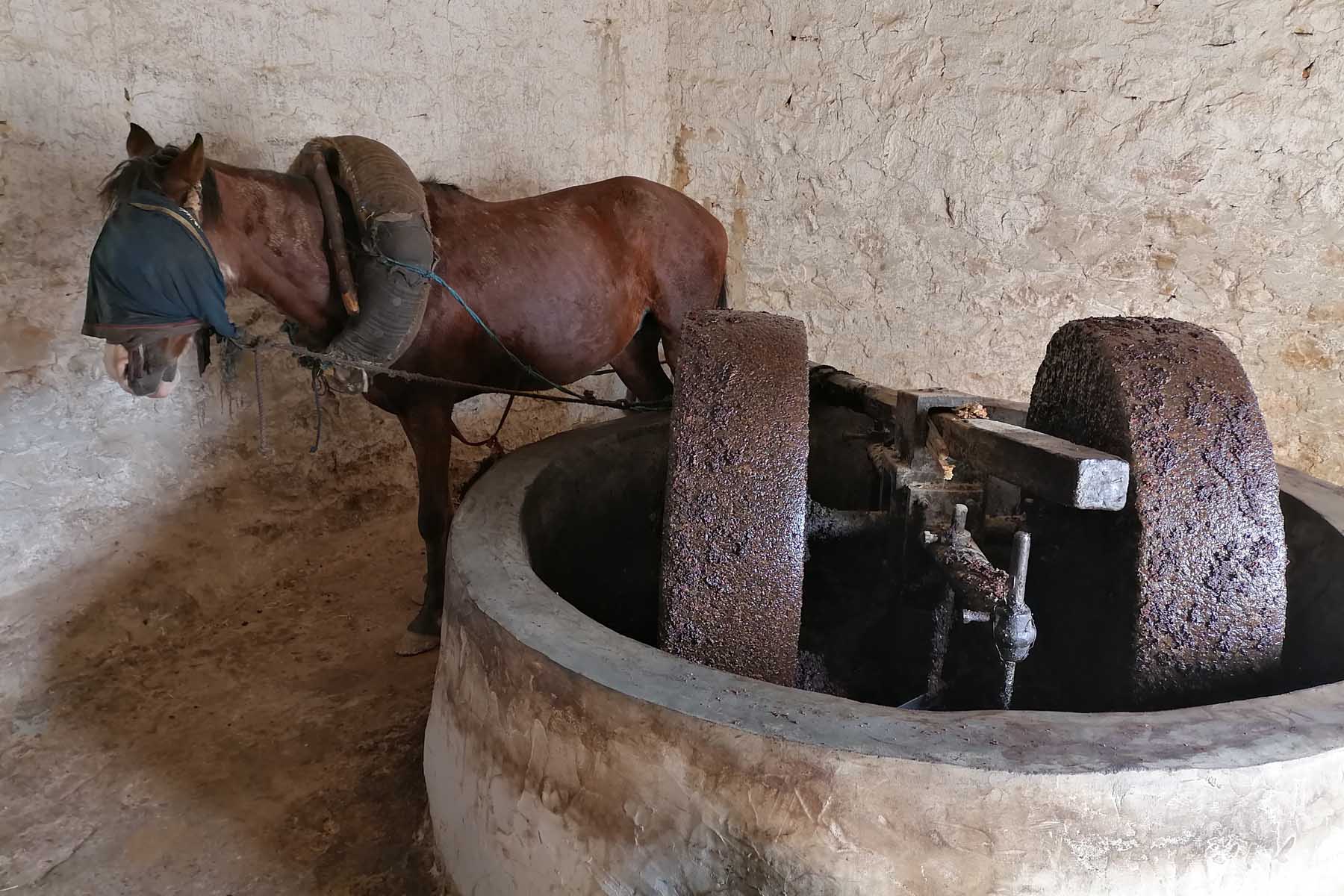
The ancient Olive Mill is a traditional system designed by the Greeks and the Romans. It is used to mechanize the process of pressing olives.
It contains a big cylindrical millstone fixed together to an iron pivot, and attached to a donkey or horse to move the stone wheel in order to crush the olives into a paste.
This process is used to facilitate the extraction of oil from the vacuoles.
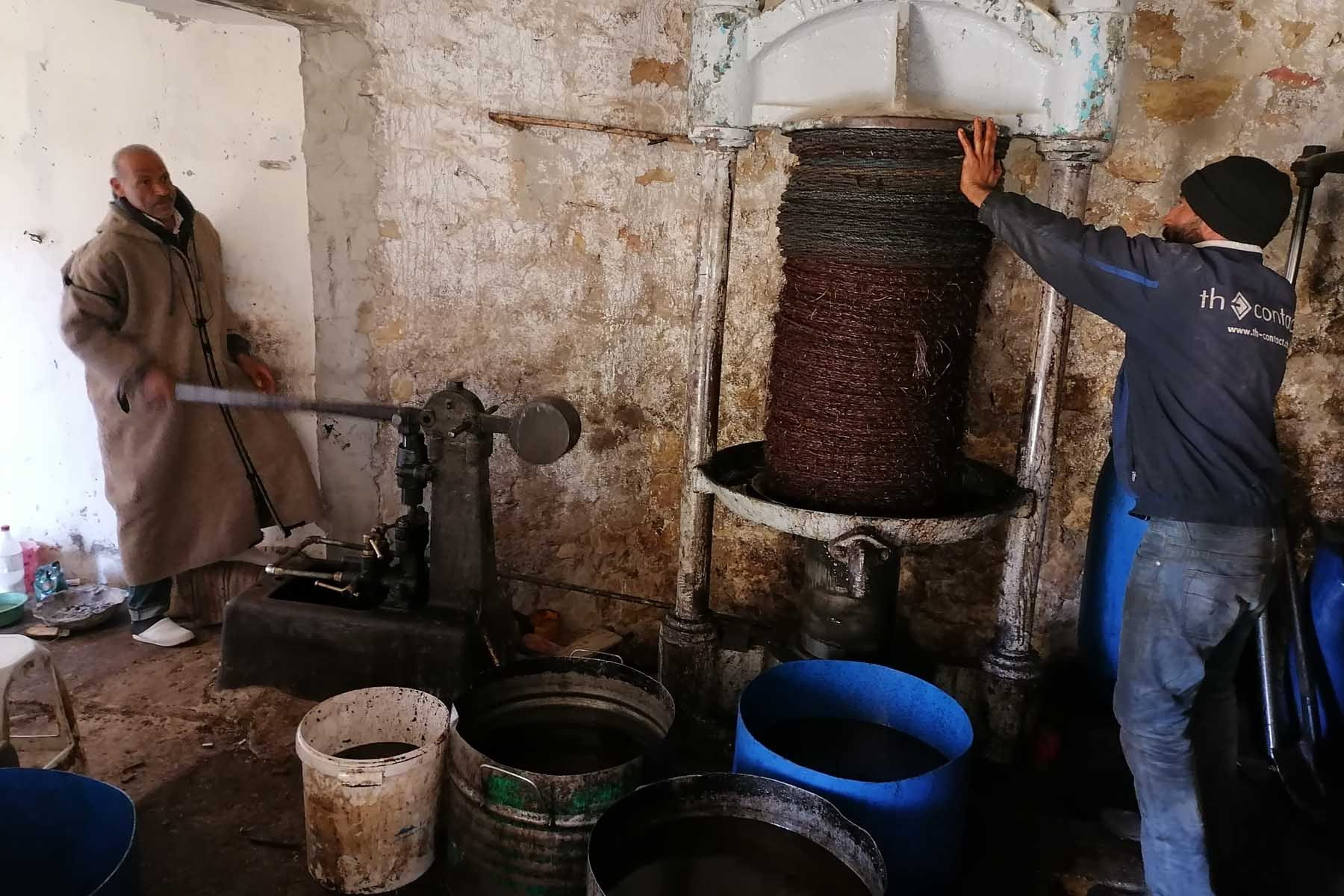
The paste is packed and pressed between esparto fibres discs using a counterweight system formed by tree trunks to produce excellent organic oil.
Then, large, heavy stones are placed on top of them, so that the weight of the stones helps filter the oil from the crushed olives.
4. A mouthwatering Berber meal is waiting for you after the olive harvesting
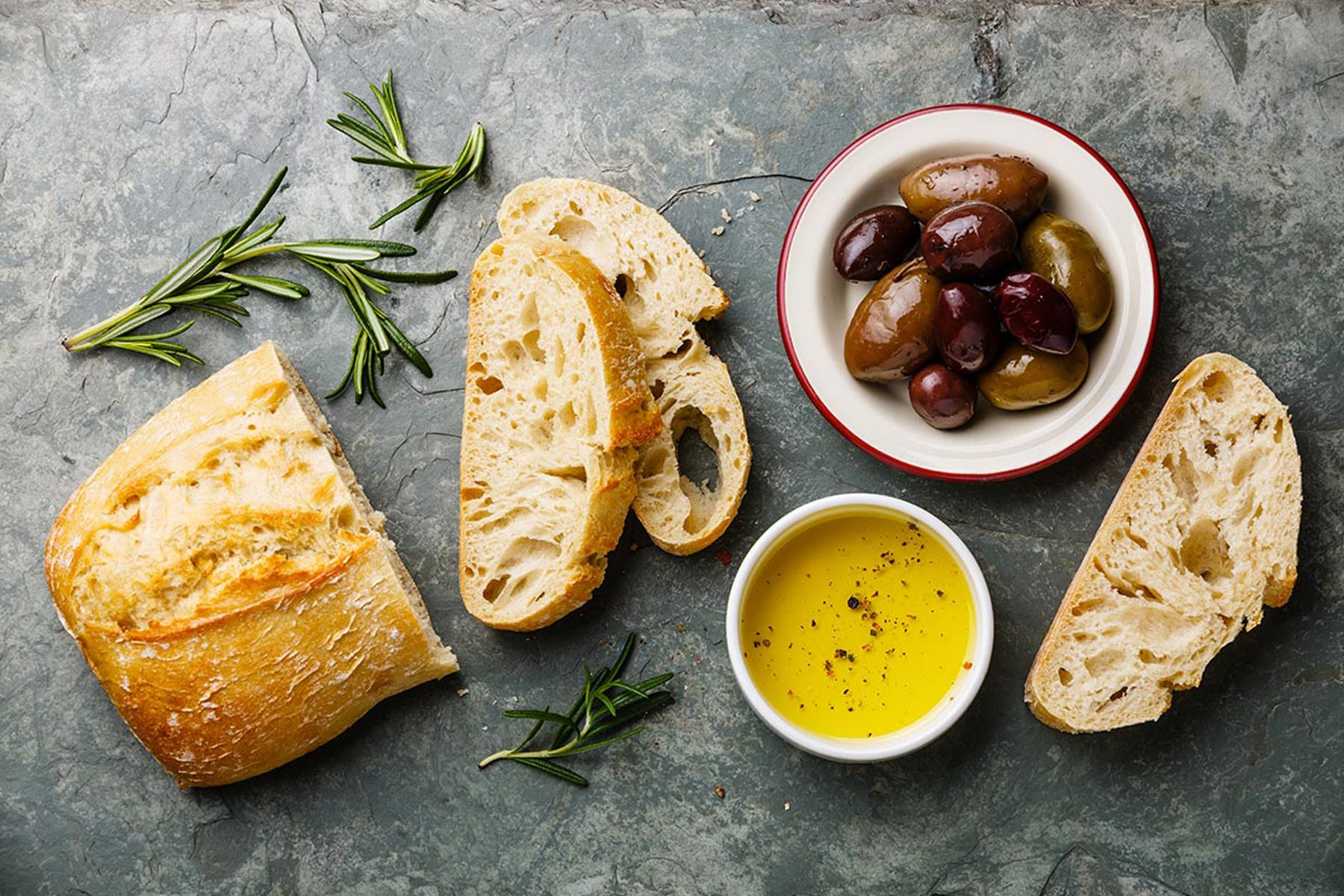
After exploring the traditional process of extracting olive oil, you will enjoy a delicious typical outdoors meal cooked by the Berber women and a tasty mint tea made slowly on a woodfire.
You will also leave with a bottle of organic olive oil extracted from the olives that you picked with your own hands.
If you want to know more about our olive harvesting tour, check the link below:
Olive Harvest with a Berber Family
Voir cette publication sur InstagramUne publication partagée par Tacapes Tours (@tacapestours.tunisia)

